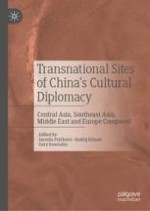2021 | OriginalPaper | Chapter
6. Two Confucius Institutes and a Cross-Border University as Sites of China’s Cultural Diplomacy in Malaysia: The Limitations of ‘Domestic Structures’
Author : Tomáš Petrů
Published in: Transnational Sites of China’s Cultural Diplomacy
Publisher: Springer Singapore
Activate our intelligent search to find suitable subject content or patents.
Select sections of text to find matching patents with Artificial Intelligence. powered by
Select sections of text to find additional relevant content using AI-assisted search. powered by
